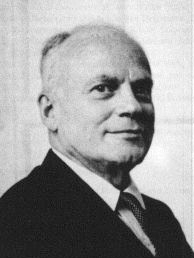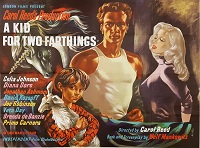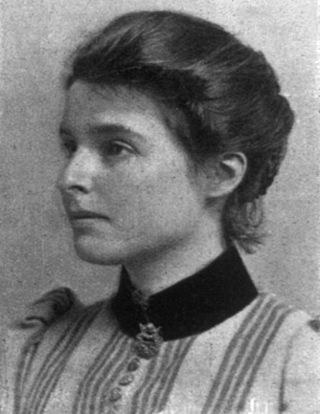Related Research Articles

Friedrich August von Hayek, often referred to by his initials F. A. Hayek, was an Austrian-born British academic who contributed to political economy, political philosophy and intellectual history. Hayek shared the 1974 Nobel Memorial Prize in Economic Sciences with Gunnar Myrdal for work on money and economic fluctuations, and the interdependence of economic, social and institutional phenomena. His account of how prices communicate information is widely regarded as an important contribution to economics that led to him receiving the prize. He was a major contributor to the Austrian school of economics.

Margaret Hilda Thatcher, Baroness Thatcher, was a British stateswoman and Conservative politician who served as Prime Minister of the United Kingdom from 1979 to 1990 and Leader of the Conservative Party from 1975 to 1990. She was the longest-serving British prime minister of the 20th century and the first woman to hold the position. As prime minister, she implemented economic policies known as Thatcherism. A Soviet journalist dubbed her the "Iron Lady", a nickname that became associated with her uncompromising politics and leadership style.

John Maynard Keynes, 1st Baron Keynes, was an English economist and philosopher whose ideas fundamentally changed the theory and practice of macroeconomics and the economic policies of governments. Originally trained in mathematics, he built on and greatly refined earlier work on the causes of business cycles. One of the most influential economists of the 20th century, he produced writings that are the basis for the school of thought known as Keynesian economics, and its various offshoots. His ideas, reformulated as New Keynesianism, are fundamental to mainstream macroeconomics. He is known as the "father of macroeconomics".

Thatcherism is a form of British conservative ideology named after Conservative Party leader Margaret Thatcher that relates to not just her political platform and particular policies but also her personal character and style of management while in office. Proponents of Thatcherism are referred to as Thatcherites. The term has been used to describe the principles of the British government under Thatcher from the 1979 general election to her resignation in 1990. In international terms, Thatcherites have been described as a part of the general socio-economic movement known as neoliberalism, with different countries besides the United Kingdom sharing similar policies around expansionary capitalism.

Dursley is a market town and civil parish in the Stroud District of Gloucestershire, England. It lies between the cities of Bristol and Gloucester. It is under the northeast flank of Stinchcombe Hill, and about 4 miles (6.4 km) southeast of the River Severn. The town is adjacent to the village of Cam. The population of Dursley was 7,463 at the 2021 Census.

Jeremy John Durham Ashdown, Baron Ashdown of Norton-sub-Hamdon, better known as Paddy Ashdown, was a British politician and diplomat who served as Leader of the Liberal Democrats from 1988 to 1999. Internationally, he is recognised for his role as High Representative for Bosnia and Herzegovina from 2002 to 2006, following his vigorous lobbying for military action against Yugoslavia in the 1990s.

Jacob Viner was a Canadian economist and is considered with Frank Knight and Henry Simons to be one of the "inspiring" mentors of the early Chicago school of economics in the 1930s: he was one of the leading figures of the Chicago faculty. Paul Samuelson named Viner as one of the several "American saints in economics" born after 1860. He was an important figure in the field of political economy.

Lionel Charles Robbins, Baron Robbins, was a British economist, and prominent member of the economics department at the London School of Economics (LSE). He is known for his leadership at LSE, his proposed definition of economics, and for his instrumental efforts in shifting Anglo-Saxon economics from its Marshallian direction. He is famous for the quote, "Humans want what they can't have."

The Road to Serfdom is a book by the Austrian-British economist and philosopher Friedrich Hayek. In the book, Hayek "[warns] of the danger of tyranny that inevitably results from government control of economic decision-making through central planning." He further argues that the abandonment of individualism and classical liberalism inevitably leads to a loss of freedom, the creation of an oppressive society, the tyranny of a dictator, and the serfdom of the individual. Hayek challenged the view, popular among British Marxists, that fascism was a capitalist reaction against socialism. He argued that fascism, Nazism, and state-socialism had common roots in central economic planning and empowering the state over the individual.

Penelope Ann Rachel, Lady Reed, known as Penelope Dudley-Ward, was an English actress.
Peter Joseph Boettke is an American economist of the Austrian school. He is currently a professor of economics and philosophy at George Mason University; the BB&T Professor for the Study of Capitalism, vice president for research, and director of the F.A. Hayek Program for Advanced Study in Philosophy, Politics, and Economics at the Mercatus Center at George Mason University.

A Kid For Two Farthings is a 1955 British comedy-drama film directed by Carol Reed. The screenplay was adapted by Wolf Mankowitz from his 1953 novel of the same name. The title is a reference to the traditional Passover song, "Chad Gadya", which begins "One little goat which my father bought for two zuzim". At the end of the film, Mr. Kandinsky softly sings fragments of an English translation of the song.

The Constitution of Liberty is a book written by Friedrich Hayek, first published in 1960 by the University of Chicago Press. Many scholars have considered The Constitution of Liberty as the most important work by Hayek.

Our Man in Havana is a 1959 British spy comedy film shot in CinemaScope, directed and produced by Carol Reed, and starring Alec Guinness, Burl Ives, Maureen O'Hara, Ralph Richardson, Noël Coward and Ernie Kovacs. The film is adapted from the 1958 novel Our Man in Havana by Graham Greene. The film takes the action of the novel and gives it a more comedic touch. The movie marks Reed's third collaboration with Greene.

The history of the London School of Economics dates from 1895, when the School was founded by Fabian Society members Sidney and Beatrice Webb, Graham Wallas, and George Bernard Shaw, with funding provided by private philanthropy, including a bequest of £20,000 from Henry Hunt Hutchinson to the Fabian Society.
George Brock is a professor of journalism at City, University of London. He held the position of head of department from September 2009 to September 2014.
Abner Carroll Binder was an American journalist. Binder was a graduate of the University of Pennsylvania and Harvard University. He is best known for his contributions to journalism as a newspaper correspondent and editor for the Chicago Daily News and the Minneapolis Tribune. Binder married Dorothy Walton in 1920, and they had four children. He died of leukemia in 1956.
Richard Aldous is a British historian and biographer based at Bard College, New York, where he is Eugene Meyer Distinguished Professor of History.

"Rejoice" was a remark made by British prime minister Margaret Thatcher in Downing Street on 25 April 1982 following a statement read by Secretary of State for Defence John Nott on the successful recapture of South Georgia from Argentine forces, one of the first acts of the Falklands War. A journalist asked, "What happens next, Mr Nott?" at which point Thatcher intervened to state, "just rejoice at that news and congratulate our forces and the Marines", on which she and Nott headed back towards 10 Downing Street. As she reached the doorstep, Thatcher reiterated "rejoice" before entering the building. The words were controversial, with Thatcher's critics regarding them as jingoistic and triumphal, particularly regarding a military operation in which lives may have been lost. Thatcher's supporters regarded the words as a statement of support for British forces and a mark of the relief felt by Thatcher after a successful military operation. The phrase, often paraphrased as "rejoice, rejoice", has been used since in speech and art. Former prime minister Edward Heath uttered the words on Thatcher's resignation in 1990. Labour prime minister Tony Blair received dissent from his backbenchers in 2004 when, after the Iraq War, he asked the House of Commons "whatever mistakes have been made, rejoice that Iraq can have such a future".
Seymour Edwin Harris, or Seymour E. Harris, (1897-1974) was an American academic and professor of economics at Harvard University serving as an economic advisor to John F. Kennedy.
References
- ↑ "Home – Penguin Random House Speakers Bureau". Penguin Random House Speakers Bureau. 24 April 2014. Retrieved 9 January 2015.
- ↑ "Wapshott, Nicholas Henry" . Who's Who . A & C Black. Retrieved 17 April 2023.(Subscription or UK public library membership required.)
- ↑ Wapshott, Nicholas "Interview with Liberal leader Paddy Ashdown", The Observer , 8 September 1991. Retrieved 25 August 2009.
- ↑ Wapshott, Nicholas "Alan Bennett: Quite Often Managing to Make Himself Wince", The Times , 28 November 1978. Retrieved 25 August 2009.
- ↑ Wapshott, Nicholas "John Major: Who I am and whence I came", The Observer , 2 December 1990. Retrieved 25 August 2009.
- ↑ "Telegraph responds to Times's sports launch – Press Gazette". www.pressgazette.co.uk. Archived from the original on 16 June 2011. Retrieved 12 January 2022.
- ↑ "Nicholas Wapshott – Archive – The New York Sun". Nysun.com. Retrieved 9 January 2015.
- ↑ "'Revolving door' guarded Murdoch paper?". Archived from the original on 20 August 2011.
- ↑ [ dead link ]
- ↑ "'Prime the Pump' or 'Roll With the Punches'?". Fox News. May 2013. Retrieved 9 January 2015.
- ↑ "Arianna Huffington, Joe Klein on debt, U.S. politics and more". Globalpublicsquare.blogs.cnn.com. Archived from the original on 21 March 2012. Retrieved 9 January 2015.
- ↑ "Charlie Rose - charlierose.com". Charlierose.com. Archived from the original on 9 January 2015. Retrieved 9 January 2015.
- ↑ "The Indestructible Journos". The Independent. Archived from the original on 15 May 2010. Retrieved 9 January 2015.
- ↑ "Nicholas Wapshott". Newstatesman.com. Retrieved 9 January 2015.
- ↑ "Q and A with Tina Brown". The Daily Beast. Retrieved 9 January 2015.
- ↑ "The Great Debate". Reuters. Archived from the original on 9 January 2015. Retrieved 9 January 2015.